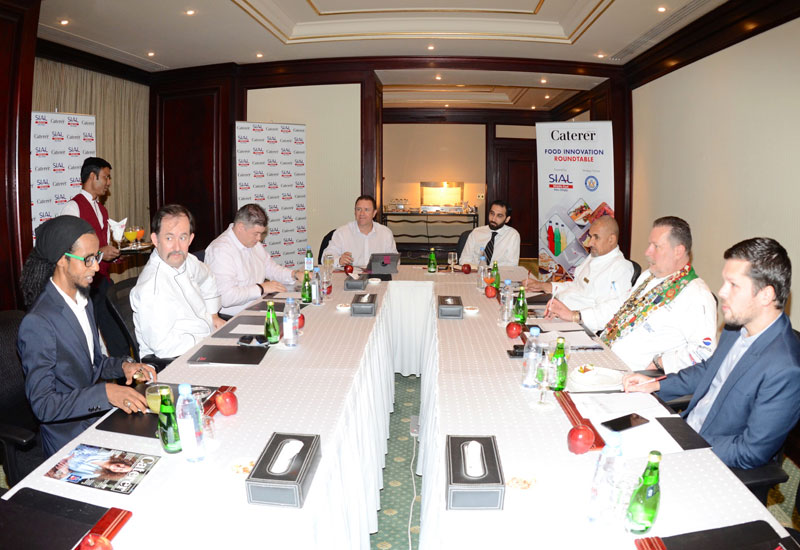 The panellists felt there is a resistance to change in F&B, but it was necessary to go back to basics.
The panellists felt there is a resistance to change in F&B, but it was necessary to go back to basics.
International fast food and casual dining brands established themselves in Saudi Arabia because of their consistent standards and family-friendly appeal, according to the Jeddah round table panellists.
“Global franchises have the power to sustain quality. They think of everything. They have systems devised by professional people,” said food critic Rashed Islam of JeddahFood.com. “And for those fast-food pioneers, TV was hugely influential and generated excitement.”
Fast food is a trend that suits Saudis, said Thomas Gugler, president of The World Association of Chef’s Societies MEA.

| Advertisement |
He said: “They found drive-ins very convenient. The system was successful here, as it is hot.”
But not every food innovation translates well. “In the west, ready meals are successful,” added Gugler, “because it’s common for both the man and woman in a couple to work full-time. Here everyone has a home-cooked meal, and there are no ready meals.”
“There is a resistance to change,” noted Islam. “But change leads to the development of creativity and a culture of improvement… and the restaurant environment too. Many restaurants here are still in canteen form.”
Maurizio Panicali, executive chef at Rocco Forte Hotel, Jeddah, said of Saudi customers: “You have to start with something they know to win their trust. Then you can play and introduce new things.”
Daniel Mayor, executive chef at Crowne Plaza Jeddah, added: “Try to find basic food — the food that grandma cooks. But it’s hard to find someone who can demonstrate that and pass on the knowledge. It runs down the female line, which is a cultural problem. It’s the ladies who cook.”
“We need someone brave to publish a book of these family recipes,” suggested Hani Zain, celebrity chef and founder of Artistic Food Lab. “Otherwise it’s all in their heads, it’s not captured or written down.”
Gugler said: “If Saudi customers accept what they know from their childhood then restaurateurs should look to serve traditional Saudi food in a pepped up modern way, but with flavours that granny would like.
“There have been attempts, but they’ve been high-end, and they’ve concentrated on the décor and forgotten the food. They’ve employed foreign chefs who don’t know the soul of the food. I’m lucky to have been to Saudi houses and seen Saudi women cooking.”
“But it’s impossible to hire ladies to cook here,” interrupted Panicali.
The panel accepted that the cultural acceptance of local people — male or female — to become chefs or waiters is very low — because those roles imply service. Zain said his father refused to visit his restaurant for many years.








 Search our database of more than 2,700 industry companies
Search our database of more than 2,700 industry companies









